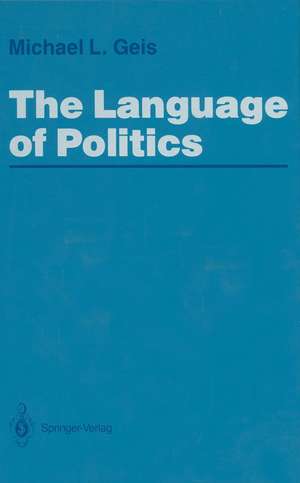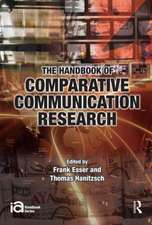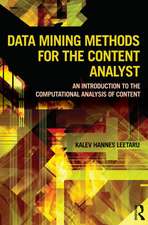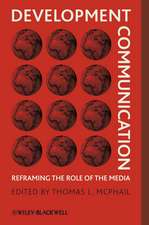The Language of Politics
Autor Michael L. Geisen Limba Engleză Paperback – 9 ian 2012
Preț: 382.75 lei
Nou
Puncte Express: 574
Preț estimativ în valută:
73.24€ • 76.66$ • 60.96£
73.24€ • 76.66$ • 60.96£
Carte tipărită la comandă
Livrare economică 31 martie-14 aprilie
Preluare comenzi: 021 569.72.76
Specificații
ISBN-13: 9781461291275
ISBN-10: 1461291275
Pagini: 204
Ilustrații: XII, 190 p.
Dimensiuni: 155 x 235 x 11 mm
Greutate: 0.29 kg
Ediția:Softcover reprint of the original 1st ed. 1987
Editura: Springer
Colecția Springer
Locul publicării:New York, NY, United States
ISBN-10: 1461291275
Pagini: 204
Ilustrații: XII, 190 p.
Dimensiuni: 155 x 235 x 11 mm
Greutate: 0.29 kg
Ediția:Softcover reprint of the original 1st ed. 1987
Editura: Springer
Colecția Springer
Locul publicării:New York, NY, United States
Public țintă
ResearchCuprins
1 Introduction.- Language and Politics.- Orwell’s Thesis.- A Question of Meaning.- Politics and Political Journalism.- The Role of Journalism in the Political Process.- The Question of Bias.- Conclusion.- 2 Language and Myth in American Politics.- Orwell’s Thesis.- Language and Myth.- Myths as Simple Causal Theories.- Myth and Language in American Politics.- Conclusion.- 3 The Language of American Presidents.- President John F. Kennedy.- President Lyndon Baines Johnson.- President Ronald Reagan.- Conclusion.- 4 The Problem of Bias in Political Journalism.- Review of the Recent Literature.- Nonlinguistic Bias.- Linguistic Bias.- Other Asymmetries in Political Journalism.- Charges of Bias in Political Journalism.- Conclusion.- 5 Reporting of Political Speech.- The Ingredients of Reported Speech.- The News Source.- References to News Receivers.- Reports of Null Speech Events.- The Content of Reported Speech.- Verbs.- Tense and Aspect in Reported Speech.- Conclusion.- 6 Identification of Context in News Reporting.- Specification of Context in News Reports.- Identification of Extralinguistic Context.- The Linguistic Context.- Conclusion.- 7 Political Bias in News Magazines.- Previous Studies.- The Present Study.- Results of the Study.- Conclusion.- 8 Linguistic Aspects of Television Journalism.- Introductory Remarks.- Live Broadcasts.- The Immediacy of Television Journalism.- The Structure of Television News Stories.- Types of Television News Stories.- Instant Television News Analysis.- Conclusion.- 9 A Brief Look at Presidential Press Conferences.- Implied Criticism.- The Reagan Replies.- The Great Communicator.- Conclusion.- 10 Conclusion.- References.













